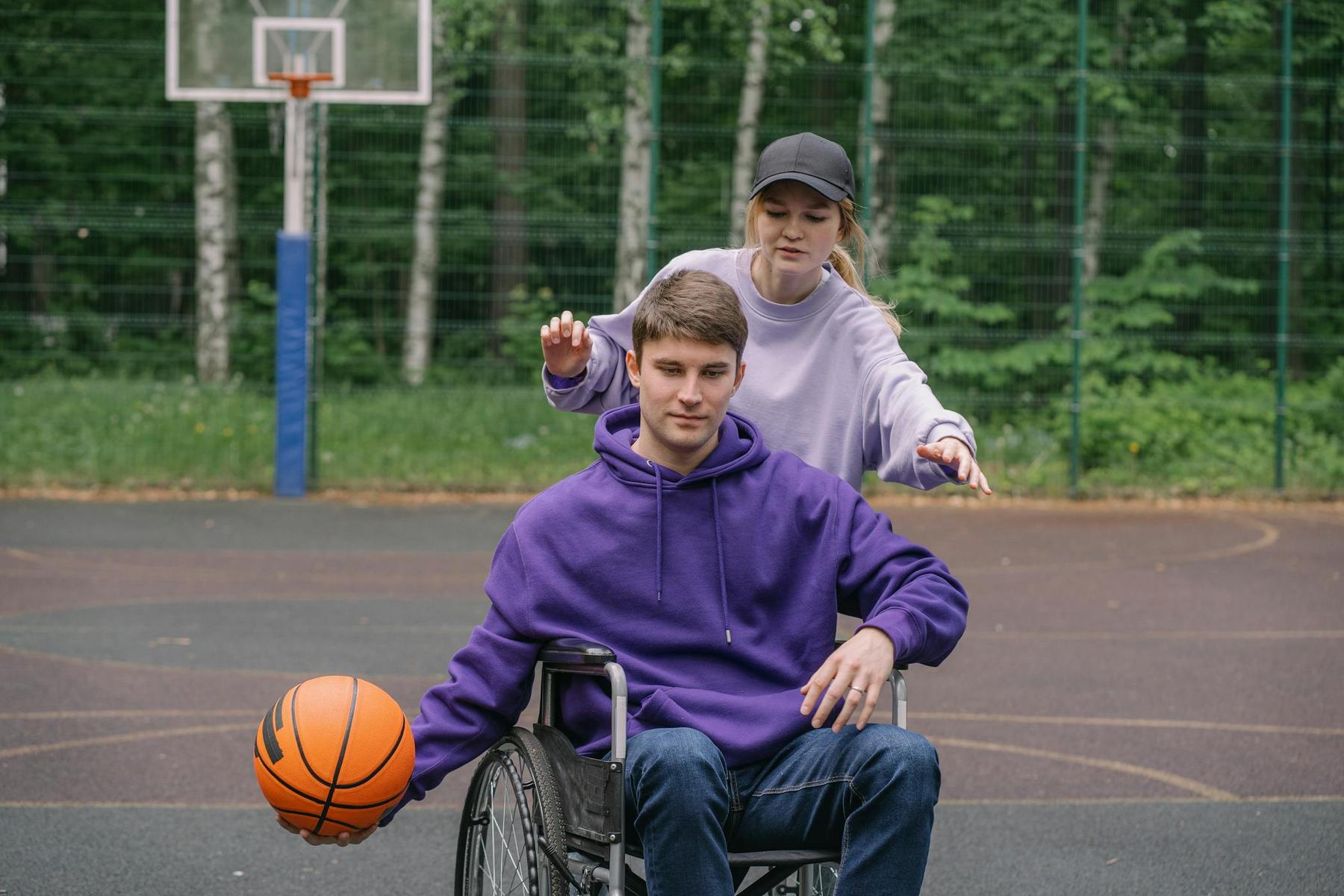When a child receives a diagnosis of Sanfilippo syndrome or another form of childhood dementia, families face an overwhelming reality that extends far beyond medical terminology and treatment plans. These progressive neurological conditions transform vibrant, developing children into individuals requiring intensive, round-the-clock care as their abilities gradually diminish. In Australia, over 2,300 children live with childhood dementia, with Sanfilippo syndrome affecting approximately 1 in 100,000 children, making it one of the most devastating yet lesser-known paediatric conditions.
The journey ahead demands not just love and resilience from families, but also comprehensive support systems that can adapt to rapidly changing needs. This is where the National Disability Insurance Scheme (NDIS) becomes a lifeline, offering 24-hour complex care that enables children to remain safely at home whilst providing families with the specialised support they desperately need. Understanding how to navigate this system effectively can mean the difference between thriving as a family unit and struggling under the overwhelming weight of caregiving responsibilities.
What Is 24-Hour Complex Care Under NDIS for Children with Childhood Dementia?
24-hour complex care under the NDIS represents the highest level of disability support available, specifically designed for children with severe, progressive conditions like Sanfilippo syndrome and other childhood dementias. This comprehensive care model recognises that these children require continuous monitoring, specialised medical interventions, and intensive personal support that extends well beyond what families can reasonably provide alone.
The complexity of childhood dementia necessitates this level of care due to the unpredictable nature of symptom progression. Children with Sanfilippo syndrome typically begin showing developmental plateauing around age 3-4, followed by speech regression, hyperactivity, sleep disturbances, and gradual loss of mobility. By age 6-10, most require full assistance with feeding, toileting, and communication, with the condition continuing to progress throughout their shortened lifespans.
Under the NDIS framework, 24-hour complex care falls within the High Intensity Daily Personal Activities (HIDPA) category, encompassing everything from basic personal care to sophisticated medical interventions. This might include tracheostomy management, enteral feeding support, seizure monitoring and response, behavioural intervention during dystonic episodes, and continuous positioning to prevent pressure injuries.
The care model integrates registered nurses who handle clinical interventions such as medication administration and medical equipment management, alongside disability support workers who provide ongoing assistance with mobility, engagement activities, and daily living tasks. This dual approach ensures that children receive both the medical expertise their conditions demand and the compassionate, personalised support that maintains their quality of life.
How Does NDIS Funding Support Children with Sanfilippo Syndrome?
The NDIS structures funding through three distinct support budgets, each addressing different aspects of a child’s needs. Children with Sanfilippo syndrome typically access all three categories due to the comprehensive nature of their requirements.
Core Supports form the foundation of 24-hour care, covering direct personal assistance including continence management, feeding support, mobility assistance, and emergency response capabilities. This category provides the flexibility crucial for families dealing with progressive conditions, as funding can be reallocated across subcategories to accommodate changing needs without lengthy review processes.
Capacity Building supports focus on skill development and therapeutic interventions, though these take on a different character when supporting children with degenerative conditions. Rather than building new skills, these supports often centre on maintaining existing abilities for as long as possible, managing behavioural challenges through specialist intervention, and supporting family members in developing care techniques.
Capital Supports address the significant equipment and home modification needs that accompany severe disability. For children with Sanfilippo syndrome, this might include ceiling hoists for safe transfers, specialised beds with pressure-relieving mattresses, communication devices adapted for declining motor skills, and extensive home modifications to create safe, accessible environments.
| NDIS Support Category | Typical Applications for Childhood Dementia | Examples |
|---|---|---|
| Core Supports | Daily personal care and assistance | 24/7 support workers, continence management, feeding assistance |
| Capacity Building | Therapeutic interventions and skill maintenance | Behavioural support specialists, communication therapy, family training |
| Capital Supports | Equipment and home modifications | Ceiling hoists, adaptive communication devices, sensory rooms |
The funding flexibility within Core Supports proves particularly valuable, as families report needing to adjust care arrangements frequently as their child’s condition progresses. This adaptability allows for increased overnight support when sleep disturbances worsen, or additional day support when behavioural challenges intensify.
What Are the Key Components of Effective 24-Hour Complex Care?
Effective 24-hour complex care for children with childhood dementia extends far beyond basic personal assistance, encompassing sophisticated clinical interventions delivered within a family-centred framework. The multidisciplinary approach ensures that every aspect of a child’s wellbeing receives appropriate attention whilst maintaining the comfort and familiarity of the home environment.
Clinical care components require registered nurses with paediatric expertise to manage complex medical needs. This includes subcutaneous medication administration for seizure control, respiratory support including tracheostomy care with quarterly tube changes, and pressure injury prevention through specialised positioning protocols. For children with feeding difficulties, nurses oversee enteral nutrition delivery and monitor for aspiration risks, whilst also managing the sophisticated equipment that often accompanies these interventions.
Behavioural support represents another critical component, particularly given the hyperactivity, aggression, and sleep disturbances common in Sanfilippo syndrome. Behavioural support plans developed with paediatric neuropsychologists focus on environmental modulation, communication strategies, and crisis de-escalation techniques that reduce the need for chemical restraints whilst maintaining safety for both the child and family members.
Family-centred respite structures form an essential element of comprehensive care, recognising that sustainable 24-hour support must also protect family wellbeing. This includes active overnight support for children requiring continuous monitoring due to seizure disorders, sleepover support for those needing intermittent assistance, and short-term accommodation providing up to 28 days of annual respite.
The integration of technology enhances care delivery through remote monitoring platforms with seizure-detection algorithms, electronic medication dispensers that sync with NDIS portals for accurate tracking, and adaptive communication boards incorporating eye-tracking software for children with declining motor skills. These innovations not only improve care quality but also provide families with greater confidence in their child’s safety and wellbeing.
How Can Families Access NDIS Complex Care in Cairns and Brisbane?
Accessing NDIS complex care in Queensland requires navigating a system that, whilst comprehensive, can prove challenging for families already overwhelmed by their child’s diagnosis and care needs. The process begins with establishing NDIS eligibility through evidence of permanent functional impairment, typically provided through paediatrician reports, genetic diagnostic confirmation, and comprehensive functional assessments.
The planning process for children with childhood dementia requires particular attention to the progressive nature of these conditions. Unlike static disabilities, degenerative conditions demand plans that anticipate future needs whilst addressing current requirements. This means providing detailed medical reports that outline expected progression trajectories, supported by evidence from treating specialists who understand the specific challenges of conditions like Sanfilippo syndrome.
In both Cairns and Brisbane, families benefit from connecting with specialist NDIS providers who understand the unique requirements of childhood dementia. These providers offer hospital-to-home transition services that include overlapping 72-hour nurse and support worker handovers, significantly reducing hospital readmissions whilst ensuring continuity of care. The regional nature of Queensland means that families in Cairns particularly benefit from providers who understand the challenges of accessing specialist services across vast distances.
Local support networks play a crucial role in successful NDIS navigation. Childhood dementia advocacy groups provide invaluable peer support and practical guidance, whilst also connecting families with providers who have demonstrated expertise in rare disease management. These connections prove particularly important given that only 12% of NDIS providers currently offer specialised training in conditions like Sanfilippo syndrome.
What Challenges Do Families Face When Navigating NDIS Complex Care?
Despite the NDIS framework providing comprehensive support pathways, families caring for children with childhood dementia encounter significant systemic challenges that can delay or complicate access to essential services. Understanding these obstacles helps families prepare more effectively and advocate for their child’s needs.
Documentation requirements represent one of the most frustrating barriers families encounter. The NDIS system requires repeated demonstration of decline through Functional Capacity Assessments, despite the predictable deterioration trajectories well-documented in conditions like Sanfilippo syndrome. Research indicates that 78% of families undergo three or more NDIS plan reviews annually to secure escalating supports, creating administrative burden during already stressful periods.
Workforce capability gaps pose another significant challenge, with the specialised nature of childhood dementia requiring support workers who understand complex medical needs, behavioural management techniques, and the emotional demands of caring for children with progressive conditions. Critical errors in care can result from inadequate training, such as improper handling during dystonic episodes or delayed recognition of aspiration risks.
The emotional toll on families extends beyond the practical challenges of care provision. Many parents report feeling isolated and overwhelmed by the complexity of coordinating multiple healthcare providers, educational supports, and NDIS services whilst watching their child’s abilities decline. The constant need to justify care requirements through assessments and reviews can feel particularly cruel when dealing with conditions that offer no hope of improvement.
Plan implementation delays create additional stress, particularly when children’s needs escalate rapidly. Families may find themselves in situations where approved supports aren’t immediately available, leaving them to bridge care gaps with inadequate resources whilst waiting for provider capacity to develop.
Building Sustainable Support Networks for Childhood Dementia
The complexity of supporting children with Sanfilippo syndrome and other childhood dementias under the NDIS framework requires more than individual navigation skills—it demands systematic improvements that recognise the unique challenges these families face. The progressive nature of these conditions necessitates care models that can adapt quickly to changing needs whilst maintaining consistency and quality.
Successful 24-hour complex care relies on the integration of clinical expertise, disability support, and family-centred approaches that honour the child’s dignity whilst providing practical assistance. The NDIS framework offers the flexibility and funding necessary to achieve this integration, but accessing these supports requires persistence, advocacy, and often the guidance of experienced providers who understand both the medical complexities and systemic challenges involved.
As awareness of childhood dementia grows and provider expertise develops, families in Cairns and Brisbane can expect improved access to specialised services. The key lies in early engagement with the NDIS system, comprehensive documentation of needs, and connection with providers who demonstrate genuine understanding of these complex conditions.
The ultimate goal extends beyond mere care provision to creating environments where children with childhood dementia can experience comfort, dignity, and connection with their families throughout their journey. When 24-hour complex care succeeds, it transforms not just the child’s quality of life, but enables families to focus on creating precious memories rather than simply surviving each day.
What makes a child eligible for 24-hour complex care under the NDIS?
Children must demonstrate permanent functional impairment requiring intensive daily support, typically evidenced through paediatrician reports, genetic diagnostics, and functional assessments. For childhood dementia conditions like Sanfilippo syndrome, eligibility is usually clear due to the progressive nature and intensive care requirements, though comprehensive documentation of current and anticipated needs is essential.
How quickly can 24-hour complex care be implemented once approved?
Implementation timeframes vary depending on provider availability and the complexity of care requirements. Families should expect 2-4 weeks for basic support arrangements, though complex medical needs requiring specialised nursing may take longer. Early engagement with experienced providers can significantly reduce these timeframes.
Can NDIS funding cover modifications needed for complex medical equipment at home?
Yes, Capital Supports within NDIS plans can fund substantial home modifications required for complex care, including ceiling hoists, accessible bathrooms, and specialised rooms for medical equipment. These modifications typically require pre-approval and quotes, but can significantly enhance a child’s safety and quality of life at home.
What happens if a child’s care needs increase faster than anticipated?
The NDIS allows for plan reviews when circumstances change significantly. Families can request unscheduled reviews with supporting evidence from treating specialists. Emergency funding may be available for immediate safety concerns, though this requires prompt medical documentation and provider coordination.
How do families find providers experienced in childhood dementia care in Queensland?
Connecting with childhood dementia advocacy groups provides valuable provider recommendations, whilst the NDIS provider finder allows filtering for complex care services. Families should specifically inquire about staff training in rare diseases and experience with progressive neurological conditions when evaluating potential providers.



